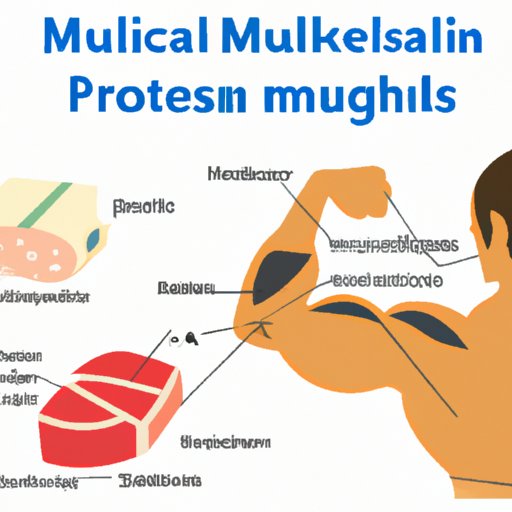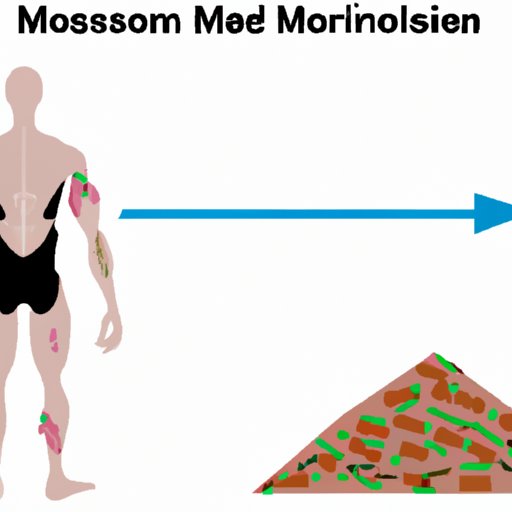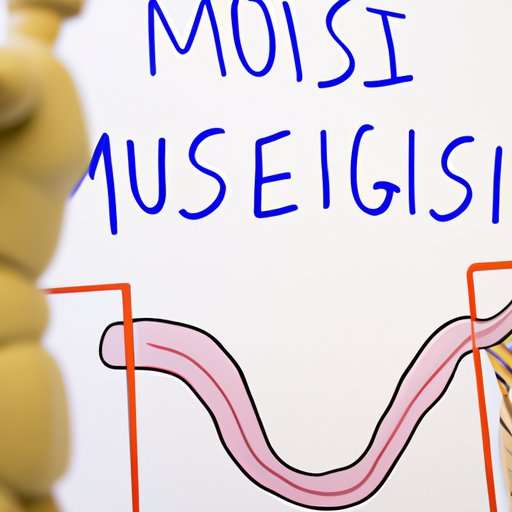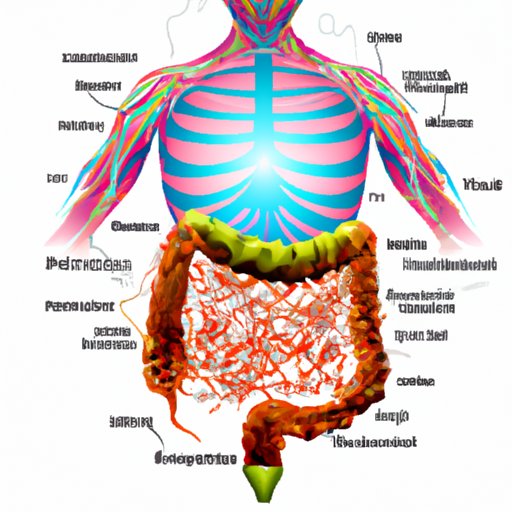Introduction
The human body is an incredibly complex system composed of many different organs and systems that work together to maintain health and function. Two of these vital systems are the digestive system and the muscular system. The digestive system is responsible for breaking down food into smaller particles so that the nutrients can be absorbed and used by the body, while the muscular system is responsible for controlling movement and providing the body with strength and power. In this article, we will explore how these two systems work together to keep the body functioning properly.
Exploring the Interaction between the Digestive System and Muscular System
The digestive system and the muscular system have a very close relationship, with both systems working together to ensure that the body is able to digest food and absorb the necessary nutrients for energy and growth. One of the ways in which the muscular system interacts with the digestive system is through the use of muscle contractions. As food moves through the digestive tract, the muscles in the walls of the tract contract and relax in order to push the food along. This process helps to break down the food as it moves through the digestive tract, making it easier for the body to absorb the necessary nutrients.
In addition to helping to move food through the digestive tract, the muscular system also plays a role in breaking down food into smaller particles. Once the food has been broken down into smaller pieces, it is then ready to be absorbed by the body. This process is aided by enzymes, which are produced by the body and help to break down the food into even smaller particles. These particles are then ready to be absorbed by the body, providing it with the necessary nutrients it needs to stay healthy.

Understanding the Role of Muscles in Breaking Down Food for Nutritional Absorption
The process of breaking down food into smaller particles is essential for the body to be able to absorb the necessary nutrients. Without this process, the body would not be able to access the vitamins, minerals, and other nutrients that it needs to stay healthy and function properly. Enzymes play a major role in this process, as they are responsible for breaking down the food into even smaller particles that are then ready to be absorbed by the body.
In addition to the role of enzymes, the muscular system also plays a role in breaking down food for nutritional absorption. The muscles in the walls of the digestive tract contract and relax in order to push the food through the digestive system, and this helps to break down the food into smaller pieces. This process makes it easier for the body to absorb the necessary nutrients from the food.

How the Muscular System Assists with Elimination of Wastes from the Body
The muscular system also plays a role in eliminating wastes from the body. As food moves through the digestive tract, the muscles in the walls of the tract contract and relax in order to push the waste along. This process helps to move the waste out of the body, ensuring that the body is able to rid itself of any toxins or other harmful substances.
Once the waste has been pushed out of the body, the muscular system then helps to expel the waste from the body. The muscles in the walls of the rectum contract and relax, allowing the waste to be expelled from the body. This process helps to keep the body clean and healthy, as it prevents toxins and other harmful substances from accumulating in the body.

Investigating the Complex Relationship between the Digestive System and Muscles
The relationship between the digestive system and the muscular system is complex and multi-faceted. Both systems work together to ensure that the body is able to digest food, absorb the necessary nutrients, and eliminate waste from the body. Without this complex relationship, the body would not be able to function properly and maintain its health.
It is important to understand the ways in which the muscular system and digestive system work together in order to maintain a healthy body. By understanding how these two systems interact, it is possible to ensure that the body is able to get the necessary nutrients it needs to stay healthy and function properly.
Conclusion
In conclusion, the digestive system and the muscular system have a very close relationship, with both systems working together to ensure that the body is able to digest food, absorb the necessary nutrients, and eliminate waste from the body. The muscular system plays an important role in breaking down food into smaller particles for absorption, as well as helping to move food through the digestive tract and expel waste from the body. It is important to understand the ways in which the muscular system and digestive system work together in order to maintain a healthy body.
By understanding the complex relationship between the digestive system and the muscular system, it is possible to ensure that the body is able to get the necessary nutrients it needs to stay healthy and function properly. With this knowledge, it is possible to take steps to maintain a healthy and balanced lifestyle.
(Note: Is this article not meeting your expectations? Do you have knowledge or insights to share? Unlock new opportunities and expand your reach by joining our authors team. Click Registration to join us and share your expertise with our readers.)
